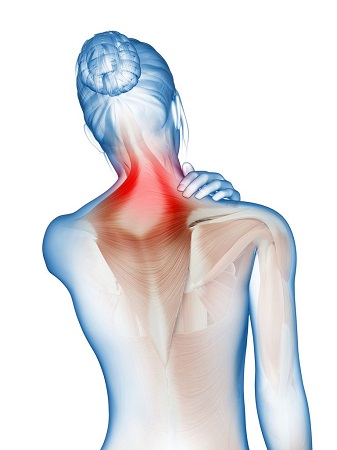What is the relationship between hormones and weight control?

To stimulate the production of growth hormone and promote the conversion of fat into energy, it is very important that, in addition to exercising, we sleep 8 hours a day.
 It is true that eating habits have a lot to do with weight control for all people. However, these are not the only ones responsible for its increase or d hormones that participate in the processes that the body performs to get rid of excess fat, or to accumulate it. The relationship between hormones and weight control is closer than we think.
It is true that eating habits have a lot to do with weight control for all people. However, these are not the only ones responsible for its increase or d hormones that participate in the processes that the body performs to get rid of excess fat, or to accumulate it. The relationship between hormones and weight control is closer than we think.
Table of Contents
There are some
These are in charge of regulating several important functions of the body, including metabolism, appetite, digestion and others that have to do with weight.
This is why an imbalance in them can affect obesity, although it must also be considered that being overweight may be responsible for this lack of control.
Considering that they are so essential for health, next we are going to look at the relationship between hormones and the relationship of weight.
Hormones and weight management
Leptin
This hormone is secreted by fat cells and has the function of signaling to the brain that we already have enough stored energy and we do not need to eat more calories.
For this reason, it is known as the “appetite suppressant” and its balance is essential for a healthy weight.
The problem is that excess fat raises it too much, causing the brain to stop listening to its signals. To prevent this from happening, increase your consumption of fruits, vegetables, and other foods rich in antioxidants.
Insulin
Insulin is perhaps one of the best-known hormones, due to the role it plays in controlling blood sugar.
However, beyond having this important task, its function intervenes in the metabolic use of nutrients, increasing energy expenditure.
When it suffers some type of alteration or imbalance, it causes sugars to be stored as fat, making weight loss difficult.
Cortisol
Known as the stress hormone, cortisol has been linked to increased abdominal fat.
Its function is to control lipid, protein and carbohydrate metabolism, in addition to intervening in blood pressure.
Its negative reactions occur when it is secreted in too much quantity due to stress or other stimulating factors.
Estrogens and androgens
Estrogens are a group of primarily female hormones, while androgens are male.
Both have to do with the distribution of fat in the body, which explains why body mass varies according to its activity in each of the stages.
For example, women in their reproductive stage tend to store more fat in their lower part, while in menopause there is more tendency to accumulate it in the abdomen.
Growth hormone
To lose weight more easily, levels of this hormone must be raised. Its activity interacts with fat cells, and drives their transformation into energy.
To stimulate it, it is recommended to carry out intense physical activity and sleep at least 8 hours a day.
Epinephrine
Better known as adrenaline, this hormone has a lot to do with the conversion of fat to energy. As you can see, the relationship between hormones and weight control is very clear at times.
Its activity suppresses the appetite, prevents the accumulation of abdominal fat and is key to avoiding obesity.
The best way to stimulate it and keep it stable is through daily physical activity.
Adiponectin
Adiponectin is a hormone synthesized by adipose tissue that participates in the metabolism of glucose and fatty acids.
Its activity improves the ability of the muscles to obtain energy through carbohydrates. It also increases the rate at which the body breaks down fats and controls appetite.
Physical activity and eating monounsaturated fats are some of the ways to keep your levels balanced.
Irisin
Irisin is a hormone that is secreted from physical activity and its job is to help burn calories more efficiently, even after finishing exercises.
This reaches white fat cells (“bad fat”) through the blood and causes it to turn into brown fat (“good fat”).
Cholecystokinin
This intestinal hormone has the task of controlling appetite by reducing calorie intake.
When released, it decreases the volume ingested and prolongs the feeling of fullness that is obtained with each meal. As you can see, hormones and weight control are quite related.
In conclusion, hormonal activity and balance play a major role in controlling body weight. The constant practice of good habits and medical check-ups are key to avoid your out of control. Did you know about this relationship between hormones and weight control?


